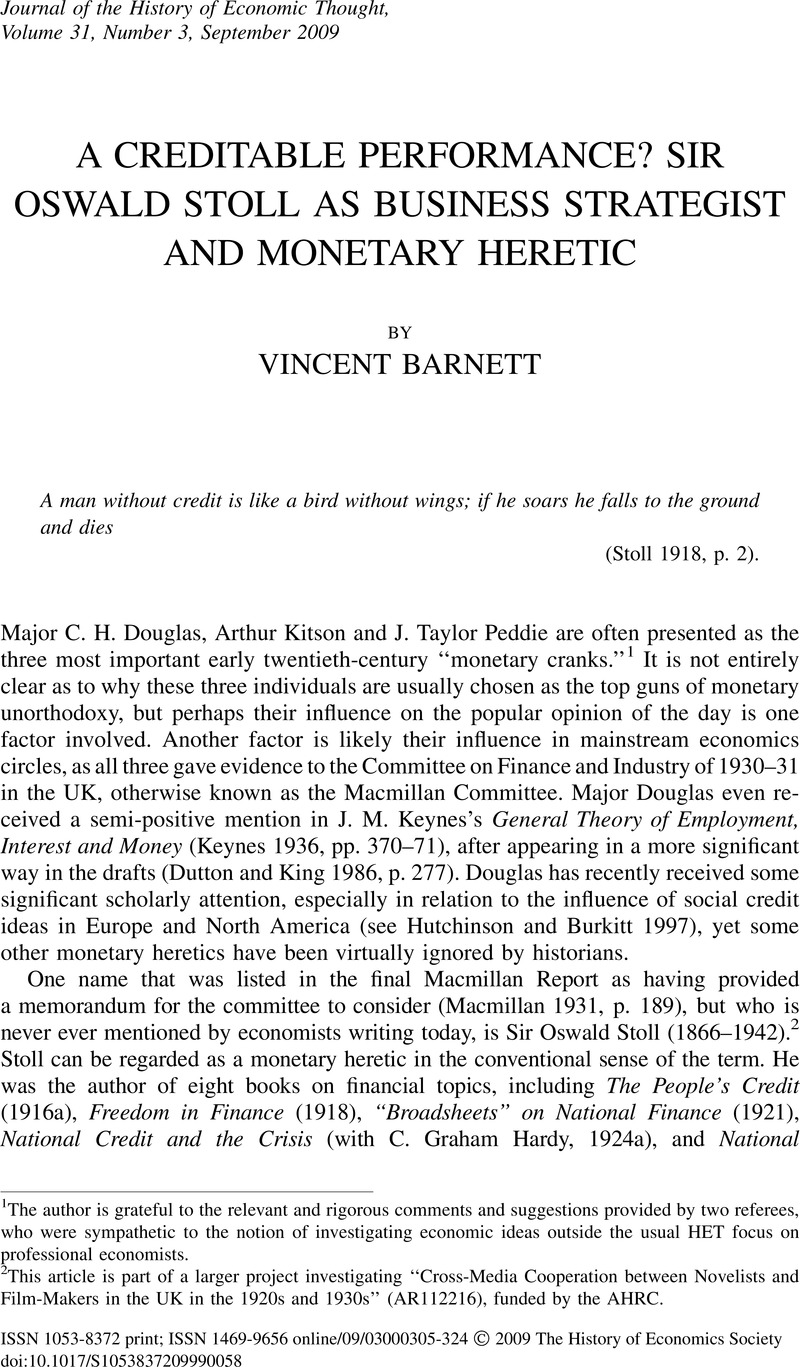Crossref Citations
This article has been cited by the following publications. This list is generated based on data provided by Crossref.
Barnett, Vincent L
2010.
The commercial effects of the adaptation of novels into films in the United Kingdom, 19101940.
Journal of Adaptation in Film & Performance,
Vol. 3,
Issue. 1,
p.
5.



